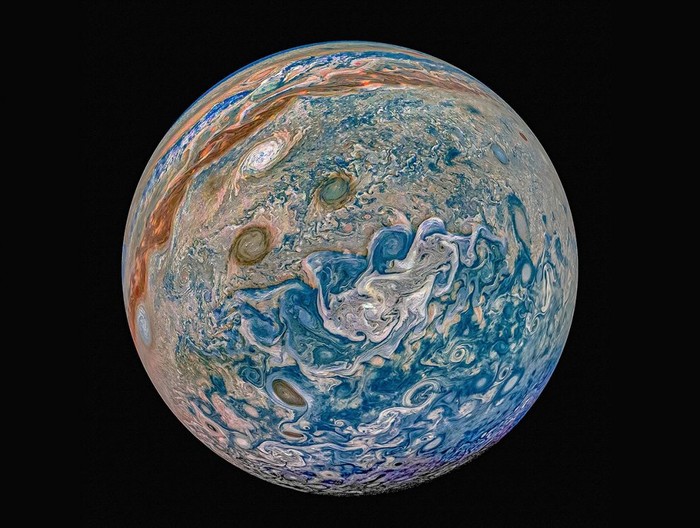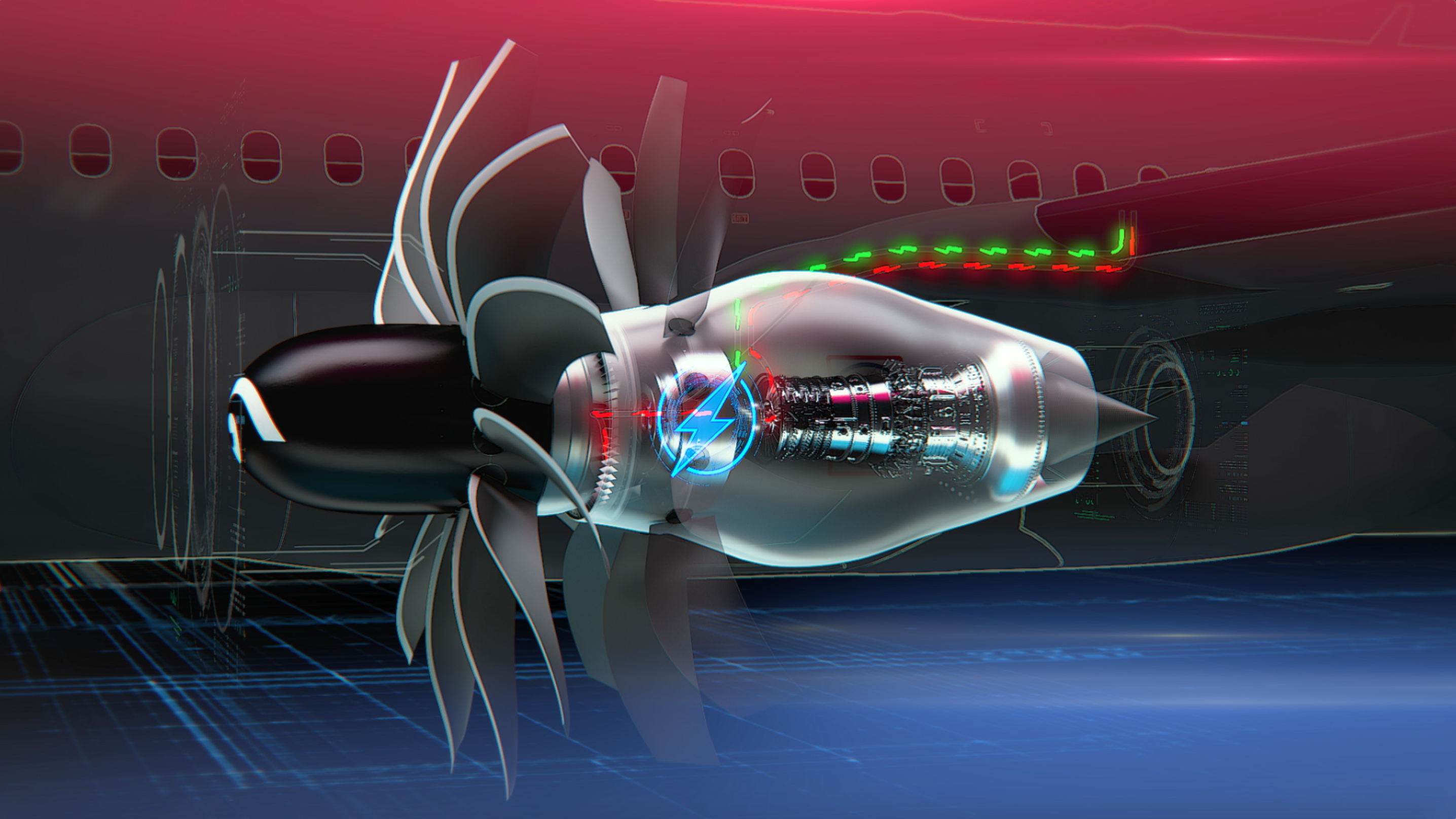The Consequences of Jupiter’s Absence in the Solar System
Introduction
The solar system, with its celestial bodies and intricate dance of gravity, is a finely tuned cosmic symphony. Each planet plays a unique role in maintaining the stability and balance of this system. Among them, Jupiter, the largest planet, holds a particularly crucial position. In this article, we will explore the hypothetical scenario of Jupiter’s absence from the solar system and the profound consequences it would entail.
1. The Mighty Guardian
1.1 The Role of Jupiter
Jupiter, often referred to as the “gas giant,” is not only the largest planet in our solar system, but it plays a crucial role as a protective force. With its massive size and immense gravitational pull, Jupiter acts as a celestial guardian, shaping and influencing the dynamics of our entire solar system. Its gravitational influence extends far beyond its own boundaries, affecting the orbits and trajectories of nearby celestial bodies. This gravitational tug-of-war between Jupiter and other objects in space creates a delicate balance, ensuring the stability and order of our solar system. Furthermore, Jupiter’s gravitational pull acts as a shield, deflecting and capturing potentially dangerous asteroids and comets that could otherwise pose a threat to Earth and other planets. In this way, Jupiter acts as a formidable protector, safeguarding our planetary neighborhood from cosmic debris and maintaining the harmony of our solar system. The immense gravitational force of Jupiter is not just a fascinating phenomenon, but a fundamental aspect of our cosmic ecosystem, with far-reaching implications for the dynamics and evolution of our celestial surroundings.
1.2 Protection from Cosmic Debris
One of Jupiter’s primary roles is to shield the inner solar system, including Earth, from potentially catastrophic cosmic collisions. Its immense gravity acts as a cosmic vacuum cleaner, attracting and capturing comets and asteroids that might otherwise strike our planet. In addition to its protective function, Jupiter also plays a crucial role in the dynamics of the solar system. Its gravitational pull influences the orbits of other planets and celestial bodies, contributing to the overall stability and balance of the system. Furthermore, Jupiter’s massive size and composition make it an important object of scientific study. Scientists are fascinated by its complex atmosphere, consisting of swirling storms and cloud bands, as well as its unique magnetic field. By studying Jupiter, researchers can gain insights into the formation and evolution of gas giants, providing valuable information about the origins and nature of our own solar system and the countless others that exist in the vast universe.
2. Disturbing the Orbital Harmony
2.1 Perturbations in Planetary Orbits
Jupiter’s mass, which is approximately 2.5 times the mass of all other planets combined, has a significant impact on the dynamics of the solar system. One of the most notable effects is its influence on the orbits of neighboring planets, such as Mars. Without the gravitational pull of Jupiter, Mars’s orbit would undergo significant changes. Specifically, its orbit would become more eccentric, meaning it would deviate from a perfect circle. This increased eccentricity could have far-reaching consequences for Mars, including potential destabilization and unpredictable climate changes. Therefore, it is clear that Jupiter plays a crucial role in maintaining the stability and balance of our solar system.
2.2 Altered Earth’s Orbit
Jupiter, the largest planet in our solar system, not only plays a significant role in the overall dynamics of our celestial neighborhood, but it also has a profound impact on Earth’s orbit. This impact goes beyond its gravitational pull and extends to the very stability of our planet’s axial tilt.
The axial tilt of Earth is the angle between its rotational axis and its orbital plane. This tilt is responsible for the changing seasons and has a direct influence on climate patterns. Without Jupiter’s presence, our axial tilt could undergo more pronounced variations, leading to a cascade of effects that would reverberate throughout Earth’s climate system.
By virtue of its immense mass and gravitational forces, Jupiter acts as a celestial guardian, keeping Earth’s axial tilt in check. Its gravitational interactions with Earth help to dampen the potential disruptive effects of other celestial bodies, ensuring that our axial tilt remains relatively stable. This stability is of utmost importance for maintaining a climate that is conducive to life as we know it.
Without Jupiter’s stabilizing influence, Earth could experience significant and unpredictable variations in its axial tilt. These variations, in turn, would give rise to extreme and erratic climate patterns. Regions that once enjoyed mild temperatures could be subjected to scorching heatwaves, while others may face prolonged periods of bitter cold. The delicate balance that currently exists on our planet could be disrupted, with far-reaching consequences for ecosystems, agriculture, and human societies.
Therefore, it is crucial to recognize and appreciate the role that Jupiter plays in maintaining the stability of Earth’s orbit and axial tilt. Its presence not only adds to the grandeur of our cosmic neighborhood but also ensures the continued habitability of our planet.
3. Impact on the Asteroid Belt
3.1 Disrupting the Asteroid Belt
Jupiter’s immense gravitational pull exerts a significant influence on the structure and dynamics of the asteroid belt, a vast region located between the orbits of Mars and Jupiter. This gravitational force acts as a gravitational shepherd, helping to maintain the delicate balance and stability of the asteroid belt. Without Jupiter’s watchful presence, the asteroid belt would be subject to increased chaos and instability, resulting in a higher frequency of collisions among the countless asteroids that populate this celestial region. These frequent collisions would pose substantial risks not only to the asteroids themselves but also to the neighboring inner planets, including Earth. Thus, Jupiter’s gravitational influence serves as a crucial cosmic guardian, safeguarding the inner planets by regulating the movement and interactions of the asteroids within the asteroid belt.
4. The Search for Life
4.1 Effects on Habitability
Jupiter’s protection, with its strong gravitational pull and massive size, has been instrumental in creating and maintaining a stable environment on Earth. This stability has been crucial in fostering the conditions necessary for life to thrive. Without Jupiter’s protective influence, the Earth could become more vulnerable to a variety of catastrophic events such as asteroid impacts and solar radiation, which could significantly impact the habitability of our planet. Therefore, it is evident that Jupiter’s presence has been instrumental in making Earth a more hospitable place for life to flourish.
5. A Different Solar System
5.1 Planetary Arrangement
The absence of Jupiter, the largest planet in our solar system, would have a profound impact on the arrangement and dynamics of the planets. Without Jupiter’s gravitational influence, the planetary positions would undergo a dramatic shift, resulting in a completely different configuration. This altered arrangement would not only affect the relative distances between the planets but also their orbital paths and interactions.
Furthermore, the absence of Jupiter could have far-reaching consequences for the habitability and climate of the remaining planets. Jupiter plays a crucial role in protecting the inner planets, including Earth, from potential asteroid impacts. Its massive gravitational pull acts as a gravitational “shield,” deflecting or capturing many asteroids that could otherwise collide with our planet. Without Jupiter’s protective influence, the frequency and severity of asteroid impacts could increase, posing a significant threat to the habitability of the surviving planets.
Moreover, Jupiter’s gravitational interactions with the other gas giants, Saturn, Uranus, and Neptune, contribute to the overall stability and balance of the solar system. These gravitational interactions help maintain the orbital resonances and prevent significant disturbances or instabilities that could disrupt the stability of the entire system. In the absence of Jupiter, the delicate equilibrium among the gas giants would be disrupted, potentially leading to chaotic interactions and orbital instabilities.
In summary, the absence of Jupiter would not only result in a different arrangement of the planets but also have profound effects on their dynamics, habitability, and climate. Preservation of Jupiter’s presence is crucial for maintaining the stability and balance of our solar system, as well as protecting the planets from potential asteroid impacts.

6. Conclusion
Jupiter’s presence in our solar system is not merely a cosmic coincidence; it is a profound and essential factor that significantly influences and determines our planetary existence. The immense gravitational force exerted by Jupiter plays a crucial role in shaping the dynamics of our celestial neighborhood. Not only does Jupiter’s gravity help maintain the stability of our own planet, but it also acts as a protective shield, deflecting and absorbing potentially harmful cosmic debris that would otherwise pose a threat to Earth. This protective function is of utmost importance in preserving the delicate balance necessary for life to thrive on our planet. Furthermore, Jupiter’s massive size and gravitational pull have a stabilizing effect on the orbits of neighboring planets, ensuring their trajectories remain relatively stable and preventing potential collisions or disturbances. Even though the hypothetical scenario of Jupiter’s absence is purely speculative, contemplating it underscores the intricate interplay and complex relationships between celestial bodies that contribute to shaping the unique and extraordinary cosmic environment we call home.
In conclusion, Jupiter, the largest planet in our solar system, plays a crucial role in maintaining the delicate balance and livability of our cosmic neighborhood. With its immense gravitational pull and magnetic field, Jupiter acts as a protective shield, deflecting dangerous asteroids and comets that might otherwise collide with Earth and other neighboring planets. This cosmic guardian not only safeguards our planet from catastrophic impacts but also influences the stability of our orbits and climate patterns.
Without Jupiter’s presence, our solar system would undergo a profound transformation, leading to a vastly different celestial landscape. The absence of Jupiter’s gravitational influence would disrupt the intricate dance of the planets, causing erratic orbits and potentially destabilizing the conditions necessary for life as we know it.
Furthermore, Jupiter’s powerful magnetosphere creates a protective barrier against harmful solar radiation, shielding Earth and other planets from the full force of the Sun’s damaging particles. This shielding effect is particularly crucial for the development and maintenance of Earth’s atmosphere, ensuring a safe and habitable environment for life to thrive.
In summary, Jupiter’s significance extends far beyond being a mere gas giant. It serves as a cosmic guardian, preserving the harmonious order and habitability of our solar system. Its absence would have profound consequences, altering the course of celestial events and jeopardizing the conditions necessary for life on Earth and our planetary neighbors.







